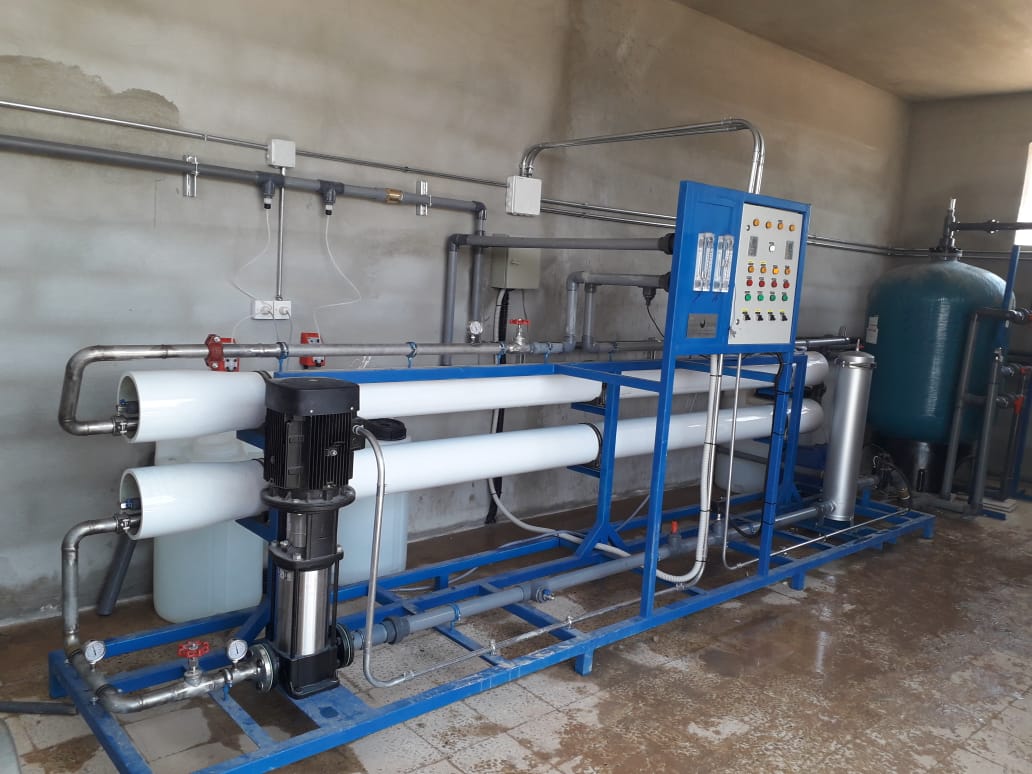
The importance of having a desalination plant in hotels and tourist villages
Digging a desalination plant for water wells in hotels and tourist villages is one of the most important measures that must be taken care of. In addition to saving the high material cost of providing drinking water or for use in kitchens. There are many other advantages:
Benefits offered by desalination plants in hotels and tourist villages
Water treatment plants must be designed to ensure that wastewater is treated and made usable. The treatment process is divided into different stages that ensure good water quality. It is necessary to install wastewater treatment plants in food and beverage plants to reap a number of benefits:
Waste reduction
Wastewater treatment plants are responsible for refining water, by removing a huge amount of waste from the water before it is released into the environment. This dramatically reduces health risks with mounting environmental pollution.
Energy production
A large amount of sludge collected during the treatment process includes a large number of degradable materials. This is treated as an anaerobic process that produces methane. The methane gas produced during the process is used to generate electricity which is ultimately useful for the operation of the wastewater treatment plant.
Fertilizer production
Biodegradable materials in wastewater can be converted into natural fertilizers that can be used in the agricultural sector and increase agricultural yields. This reduces the use of chemical fertilizers.
Reusable water
Once treated, wastewater produces reusable water that can be used for any other purposes in industry, on agricultural land, or can be transported to a residential area for multiple uses.
Maintaining safety and high quality
Treated and refined water can be used to produce safe, high-quality food and beverage products.
New German desalination technologies at low costs in hotels and tourist villages
The high costs of desalination plants have been a major obstacle to their deployment in water-deficient countries, but new German technologies have bypassed this problem by developing affordable small and medium-sized desalination plants.
Water shortage problem
The problem of drinking water shortage is increasing in both developing and industrialized countries due to the pollution of its sources. This prompts the search for new sources, in addition to the development of new processing techniques in addition to the well-known traditional techniques. In this context, many countries have resorted to desalinating seawater or saline groundwater by relying on high-capacity desalination plants. The high costs of these stations, which exceed $100 million on average, are the most prominent problems facing countries that suffer from a shortage of rainwater and groundwater.
New desalination plants
With the aim of obtaining high technologies and less cost, many academic institutions in Germany, in cooperation with specialized German companies, began working on developing small and medium desalination plants with low costs. Which succeeded in developing medium and small-sized plants for desalinating brine and purifying sewage water. In cooperation with the German Institute of Refrigeration and Conditioning in Dresden, ILK. The equipment has been developed to equip small desalination and purification plants with a capacity of 100 to 400 m3/day. These stations can be used on a local scale in villages, countries, tourist resorts, and even hotels. Without the need for sanitary installations of tens of kilometers or more. This is appropriate for the conditions of countries with large areas that have not yet completed the preparation and modernization of their infrastructure, such as the Arab countries.
Advantages of desalination plants in hotels and tourist villages
One of the advantages of the new plant systems we are proud to use is their low cost. It also ensures the optimal use of energy. By controlling the amount of desalinated water by using more than one factor in the desalination process. By controlling the speed of the piston. Through it, it is possible to obtain a quantity of desalinated water without resorting. To enlarge the piston and increase the number of thermal plates associated with it. Thus, energy consumption is reduced to its minimum. The system is also equipped to meet the customer’s wishes regarding the quality of water he wants to obtain; Water for farming or drinking. It also has the advantage of reducing chemical treatment processes to a level not known to previous technologies.
























